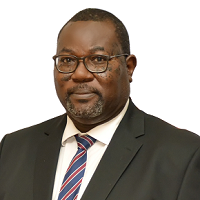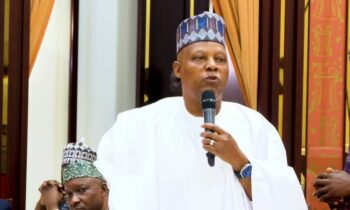
Olusola Bello
The electricity and gas have so far gotten financial assistance to tune of N225.92 billion as intervention to the energy sector from the Central Bank of Nigeria so far.
The Central Bank Governor Godwin Emefule disclosed this at the end of the MPC Monetary Policy Committee MPC meeting on Friday.
According to him, “The MPC Committee reviewed the performance of the Bank’s interventions to sustain the recovery of output growth and address the downside risks to other external 4 and domestic shocks to the economy. Interventions continued largely in Manufacturing, Agriculture, Energy/infrastructure and Micro, Small, and Medium Enterprises (MSMEs).”
A breakdowns of the disbursement indicates that the electricity sector received a total of N186.72 billion with the Electricity Distribution Companies (DISCOs) being the greatest beneficiaries of the money.
Under the National Mass Metering Programme (NMMP), N41.06 billion has been disbursed to ten (10) DisCos, for the procurement and installation of 759,748 5 electricity meters.
Under the Nigerian Electricity Market Stabilization Facility – 2 (NEMSF-2), the Bank has released the sum of N145.66 billion to 11 DisCos as loans to provide liquidity support and stimulate critical infrastructure investment to improve service delivery and collection efficiency.
In furtherance of its intervention in the energy sector, the Bank has disbursed N39.20 billion to six (6) beneficiaries to improve gas-based infrastructure to support the Federal Government’s Auto-Gas Conversion Programme.
Despite the CBN intervention a good number of the Nigerian Communities are still heavily underserved with meters. When it comes to supply side the performance of the discos are still abysmally low with also a good number of towns and villages not getting supplies.
Meanwhile Kaduna, Kano, and Plateau residents are battling blackout as the Transmission Company of Nigeria (TCN) attributes the power outage to load shedding.
”TCN regrets the inconveniences the slight load reduction is causing to electricity consumers in the affected states. The NDPHC requested power outage on the Makurdi-Jos portion of TCN’s Ikot Ekpene -Ugwuaji -Makurdi – Jos 330KV transmission line to enable it to carry out transposition on the line and to connect the new Lafia substation,” said the TCN in a statement.
It assured that the connection works by NDPHC to its new Lafia substation “have advanced” and would soon be completed.
Although the ongoing work by NDPHC “interrupted bulk power supply from the Makurdi-Jos 330KN transmission line axis only,” Jos is currently receiving electricity through the Kaduna-Jos 330kV transmission line.
“Consequently, there is a slight load constraint in Kaduna, Kano, and Jos axis as the load from Ikot Ekpene – Ugwuaji – Makurdi has been cut off on the Makurdi – Jos axis as a result of the ongoing work,” explained the TCN. “Power supply through the Lafia – Jos 330kV line is to ensure that Jos gets electricity supply until NDPHC completes the connection of the new Lafia Substation to the grid.”
The TCN also noted that the connection work by NDPHC would increase the capacity of the national grid.
The statement further explained that the TCN would restore the bulk power supply on the Makurdi-Jos line immediately after the NDPHC transposition work would have been completed.
The new law being proposed by the National Assembly as part of an amendment to the Electric Power Sector Reform Act (EPSRA) may compel electricity generation companies to fund host communities with five per cent of their revenue, thereby further increasing the cost of electricity in the country.
The bill, sponsored by Babajimi Benson, representing Ikorodu Federal Constituency, provides for the reservation of five per cent of the revenue accruing from power generated by the power generating companies for the development of host communities.
The proposed legislation, which was read for the first time on February 23, 2020, has passed for second reading as a draft showed that the fund would be received, managed and administered by a Trustee to be appointed by the generating companies (GENCOs) and representative of the host communities, upon agreement among the host communities.
Already the companies are over burdened by the existing taxes that they are paying. Such taxes like the a corporate tax rate of 30 per cent, education tax of two per cent, police tax, land use charge and other levies at states and local councils.
This situation some stakeholders believe might lead to sharp increase in electricity tariff increase electricity tariff as the companies may be embedded in the operating expenses and pass the burden to the end-users.
While the outlook of the power sector has remained dismal, performing far below expectations and projections since privatised in 2013, some stakeholders insist that confusion awaits the sector, especially in the areas of legal and regulatory framework if the new bill scales through.




